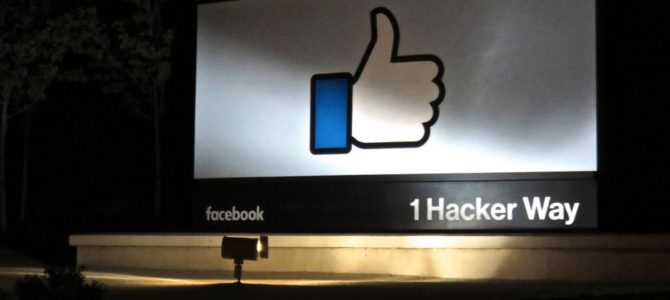
After detractors absurdly complained a simple red triangle used in a Trump campaign ad on Facebook resembled a “Nazi concentration camp symbol,” the media pressed Facebook for a response and the company removed the post. The dust-up is another example of Big Tech’s willingness to comply with requests made under the auspices of social justice that ultimately hamper conservatives’ use of their powerful platforms.
According to its own report, queries from the Washington Post prompted Facebook to remove the ad. “In response to queries from The Washington Post, Facebook on Thursday afternoon deactivated the ads that included the inverted red triangle,”
“We removed these posts and ads for violating our policy against organized hate. Our policy prohibits using a banned hate group’s symbol to identify political prisoners without the context that condemns or discusses the symbol,” a Facebook company spokesperson noted in a statement on Thursday, referring to the Nazi’s practice of using inverted red triangles to mark political prisoners.
Tim Murtaugh, communications director for the campaign, released a statement that reasonably explained, “The inverted red triangle is a symbol used by Antifa, so it was included in an ad about Antifa.”
Murtaugh added, “We would note that Facebook still has an inverted red triangle emoji in use, which looks exactly the same, so it’s curious that they would target only this ad.”
That’s accurate, and indicative of how generic and disassociated with Nazis the symbol actually is in our cultural imagination. The inverted red triangle emojis available from both Facebook and Apple actually resemble the Nazi symbol more closely, since those don’t have the black border on the triangle used by Trump’s campaign. That’s also true of stick tickers. By Facebook’s logic, those emojis should never be posted on the site “without the context that condemns or discusses the symbol.”
A senior Trump campaign official described Facebook’s decision as an example of “left-wing social media giants like Twitter and Facebook making up the rules as they go along and selectively applying them to people they don’t like and want to silence.” The campaign also passed along examples of the symbol appearing on antifa merchandise, like this water bottle available on Red Bubble. With a reverse image search, I found the exact symbol from the ad used on the website of a U.K.-based video game retailer.


This is bigger than Trump. Facebook’s policy that hate symbols can only be posted on the site with “context that condemns or discusses the symbol,” might be overly broad, but it’s reasonable enough. What this situation underscores, however, is that Corporate America is hyper-responsive to far-flung, unsubstantiated complaints issued by leftist groups, which are easily seized upon by corporate media outlets, whose inquiries intimidate companies to appease their detractors, fearful of bad press. Here at The Federalist, we know a little something about that.
Facebook’s decision is the product of that same pipeline from leftist activist groups to the corporate media, to corporate PR departments, to action against conservatives. Even if Facebook were reacting to complaints from both the left and right equally, the process would still be a recipe for disaster, allowing activist groups to weaponize complaints with dubious legitimacy by attracting media attention, which threatens companies. That’s pretty much where we are already, although the heightened political tensions this month have seemed to accelerate the trend. Companies are more fearful than ever of criticism from the left.
The onus is on reporters and brands to apply a reasonable standard of legitimacy to complaints before taking action to address them. The consequence of keeping that bar low will be an endless slew of controversies inducing continuous cultural warfare over nonsense. It also risks creating a boy-who-cried-wolf effect, numbing people to these complaints to the point where they tune out or dispute serious ones.
Just last month, Facebook CEO Mark Zuckerberg told Dana Perino he “believe[s] strongly that Facebook shouldn’t be the arbiter of truth of everything that people say online,” referring to tweets from Trump that Twitter had flagged.
“I think, in general, private companies probably shouldn’t be — or especially these platform companies — shouldn’t be in the position of doing that.” Zuckerberg is right to draw such a line. His sentiments should inform the platform’s policies, and Facebook should be bold enough to keep defending them.









